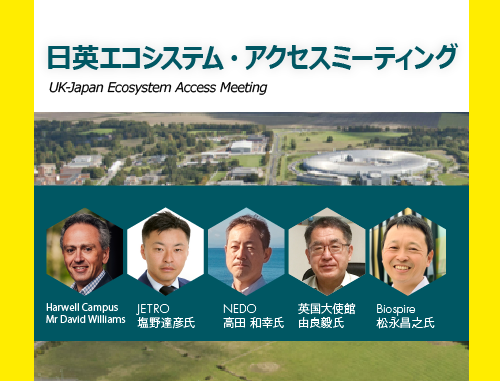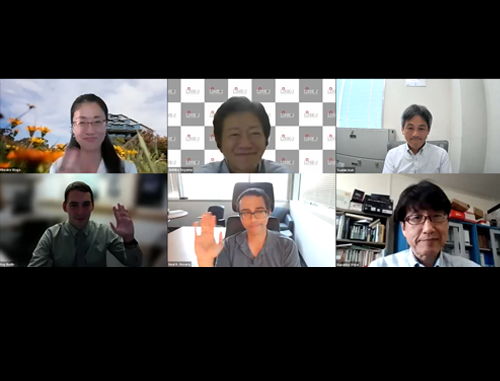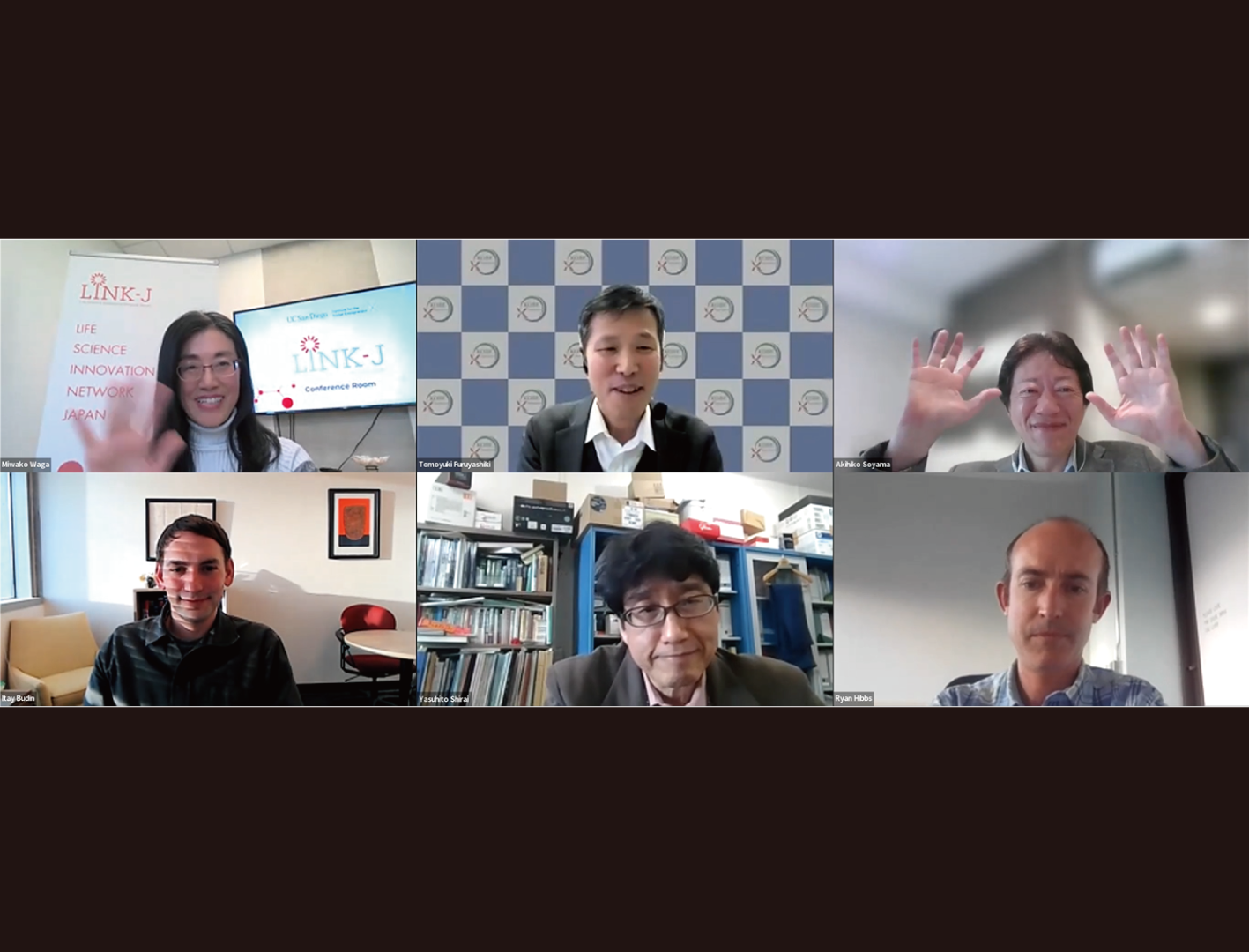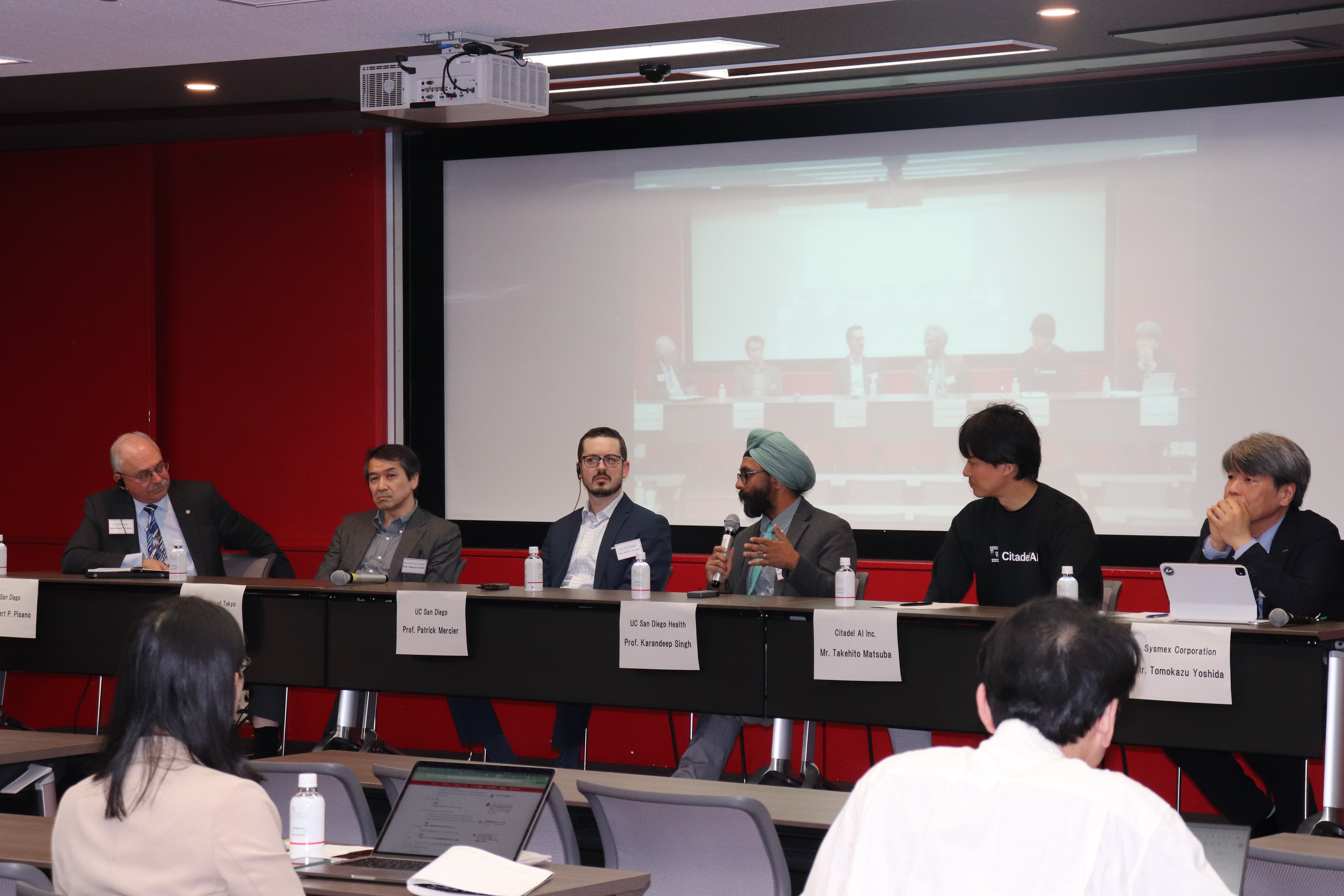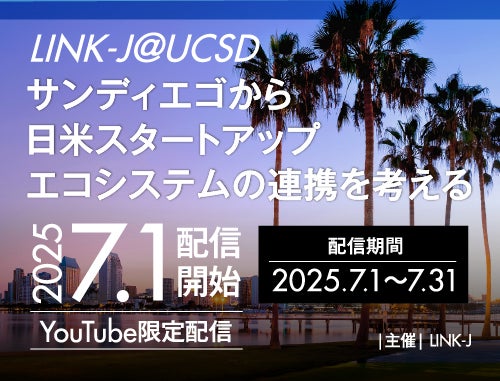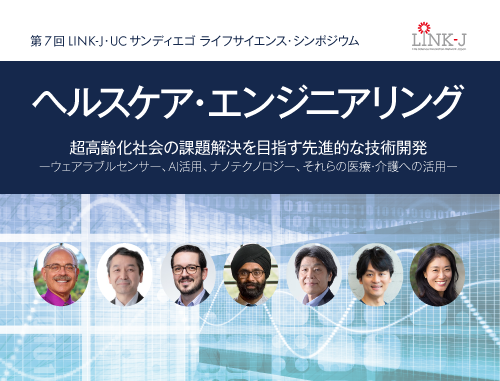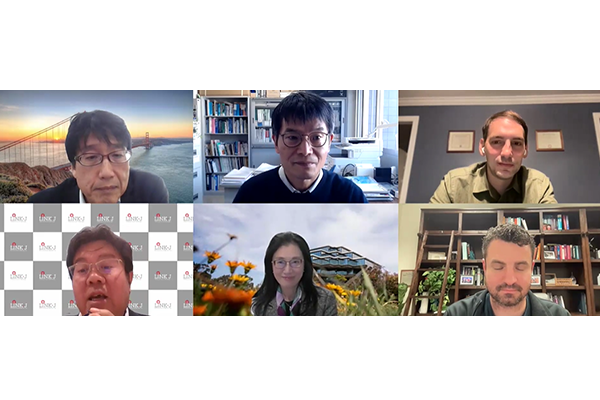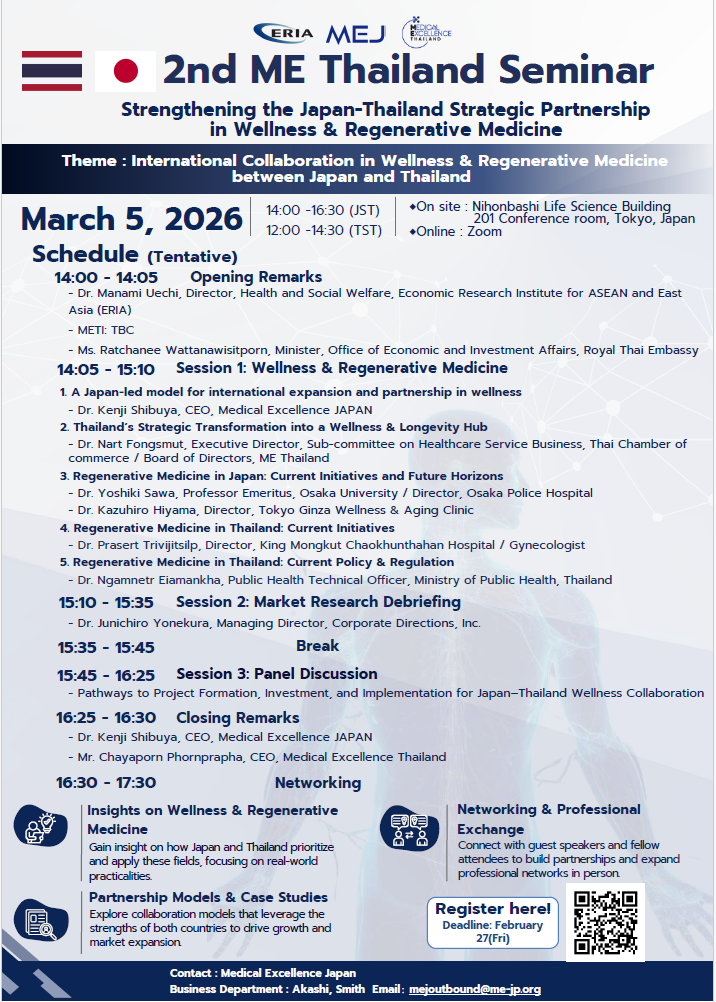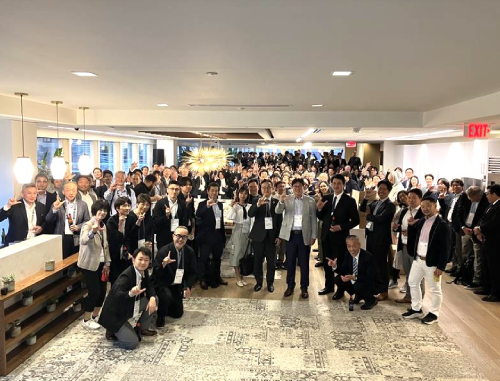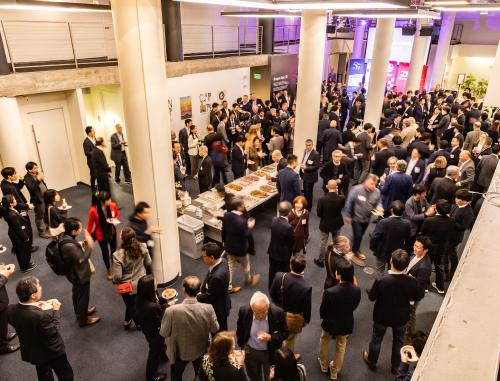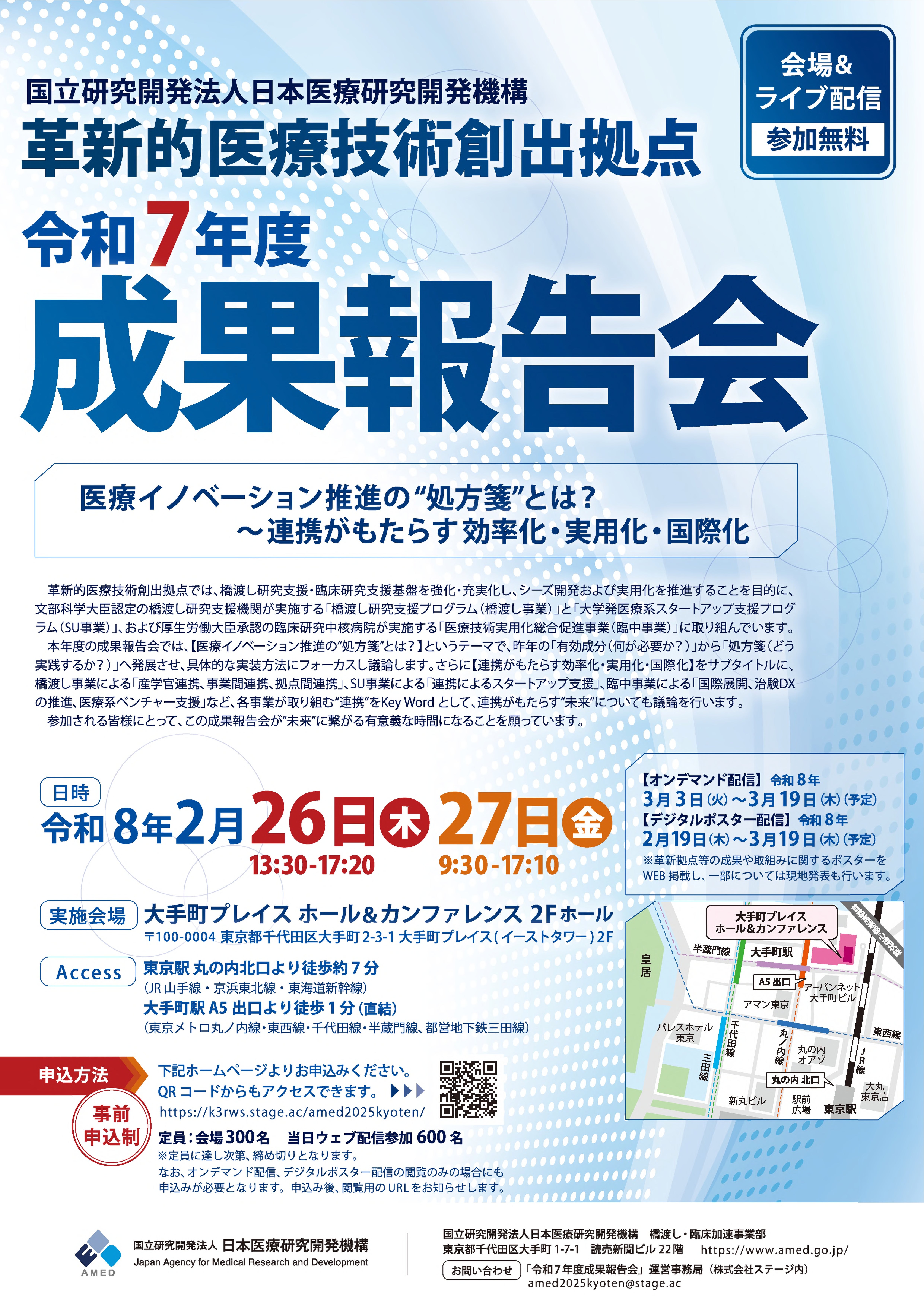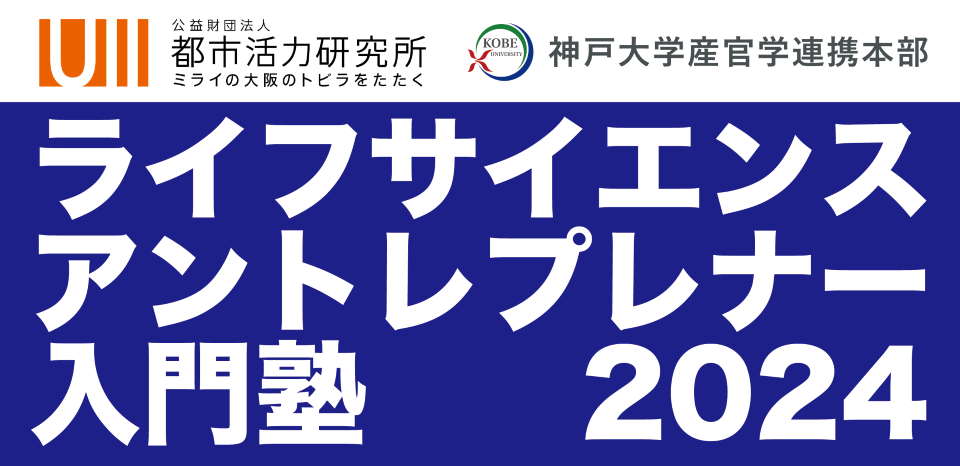2023年11月29日(水)、オンラインにて、UCサンディエゴとのウェビナーシリーズの13回目を開催いたしました。今回は、UCサンディエゴのセルシグナリングセンターと神戸大学のバイオシグナル総合研究センター及びメディカルトランスフォーメーション研究センターの最新の研究を紹介する目的で、Jin Zhang先生(UC San Diego)および前濱 朝彦先生(神戸大学)にご講演頂きました。

【登壇者】
白井 康仁 先生(神戸大学 農学研究科 教授)
Dr. Itay Budin (Assistant Professor of Chemistry & Biochemistry and Bioengineering, UC San Diego)
Dr. Jin Zhang (Professor and vice Chair, Department of Pharmacology & Professor, Departments of Chemistry & Biochemistry and Bioengineering, UC San Diego)
前濱 朝彦先生(神戸大学 医学研究科 准教授)
高橋 俊一(LINK-J事務局長)
和賀 三和子氏(UC San Diego国際イノベーションアウトリーチシニアディレクター)
冒頭に白井先生とItay Budin博士よりご挨拶および講演者の紹介を頂き、パネルディスカッションではモデレーターとして質疑応答を行いました。ご講演のアブストラクトは以下のとおりです。
[講演]"Illuminating the Biochemical Activity Architecture of the Cell"
Dr. Zhang's talk (Professor and vice Chair, Department of Pharmacology & Professor, Departments of Chemistry & Biochemistry and Bioengineering, UC San Diego)
The complexity and specificity of cellular processes require spatial microcompartmentation and dynamic modulation of the underlying biochemical activities, such as dynamic phosphorylation and dephosphorylation catalyzed by specific protein kinases and phosphatases, respectively. We hypothesize that cellular biochemical activities are spatially organized into an "activity architecture" and reorganization and restructuring of this activity architecture lead to disease. In this talk, I will introduce a series of genetically encoded fluorescent biosensors that we have developed to monitor biochemical events in living cells, and then present a couple of studies where we combine quantitative fluorescence imaging with targeted perturbations as well as biochemical and functional assays to probe the subcellular regulation of cAMP/PKA and ERK signaling pathways.
[講演]"Hippo-YAP Signaling Pathway in Squamous Cell Carcinoma Onset and Progression"
前濱 朝彦先生(神戸大学 医学研究科 准教授)
The Hippo-YAP signaling pathway regulates organ size, tissue homeostasis, and tumorigenesis in mammals. The Hippo core complex which consists of MST and LATS kinases and their adaptor proteins, SAV1 and MOB1, blocks the translocation of YAP1/TAZ proteins to the nucleus, curtailing cell growth. Activation of YAP1/TAZ occurs in many human malignancies and promotes their initiation, progression and metastasis. To clarify the molecular mechanism of YAP-driven cancer development in vivo, we generated mice that were deficient for critical Hippo component MOB1 to increase intrinsic YAP activity.
The deletion of MOB1 in the tongue and cervix in mice resulted in the rapid and highly reproducible development of squamous cell carcinoma (SCC) in these tissues. Consistently, immunohistochemical analysis showed strong YAP activation in human cervical and tongue cancers from the pre-cancerous stage. Genetic alterations, such as TP53, PTEN, FAT1, frequently observed in tongue cancers all increased YAP activity in tongue cancer-derived cell lines, and the effect was additive. Risk factors for cervical cancer, such as cigarette smoke condensates and estrogen, also increased YAP activity in cervical epithelial cells. These observations suggest that genetic and environmental risk factors induce incremental activation of YAP. These cancer onsets may initiate when YAP activity eventually exceeds an oncogenic threshold, indicating Hippo-YAP signal as a major driver for for the onset of these SCCs.
This talk will focus on the molecular mechanism for SCCs with showing our recent progress in SCC mouse model studies. In addition, our recently developed potent YAP inhibitors will be discussed.
当日の模様は、LINK-JのYouTubeチャンネルでアーカイブ動画として公開しておりますので、是非ご覧ください。
講演後はQ&Aセッションを実施しました。白井先生とItay Budin博士がモデレーターとなり、視聴者からの質問を受け付け、細胞膜研究に関する様々な議論が交わされました。
ご参加いただいた皆様ありがとうございました。今後もUC San Diegoとの共催ウェビナーを継続的に開催する予定です。
皆様ぜひご参加ください。
